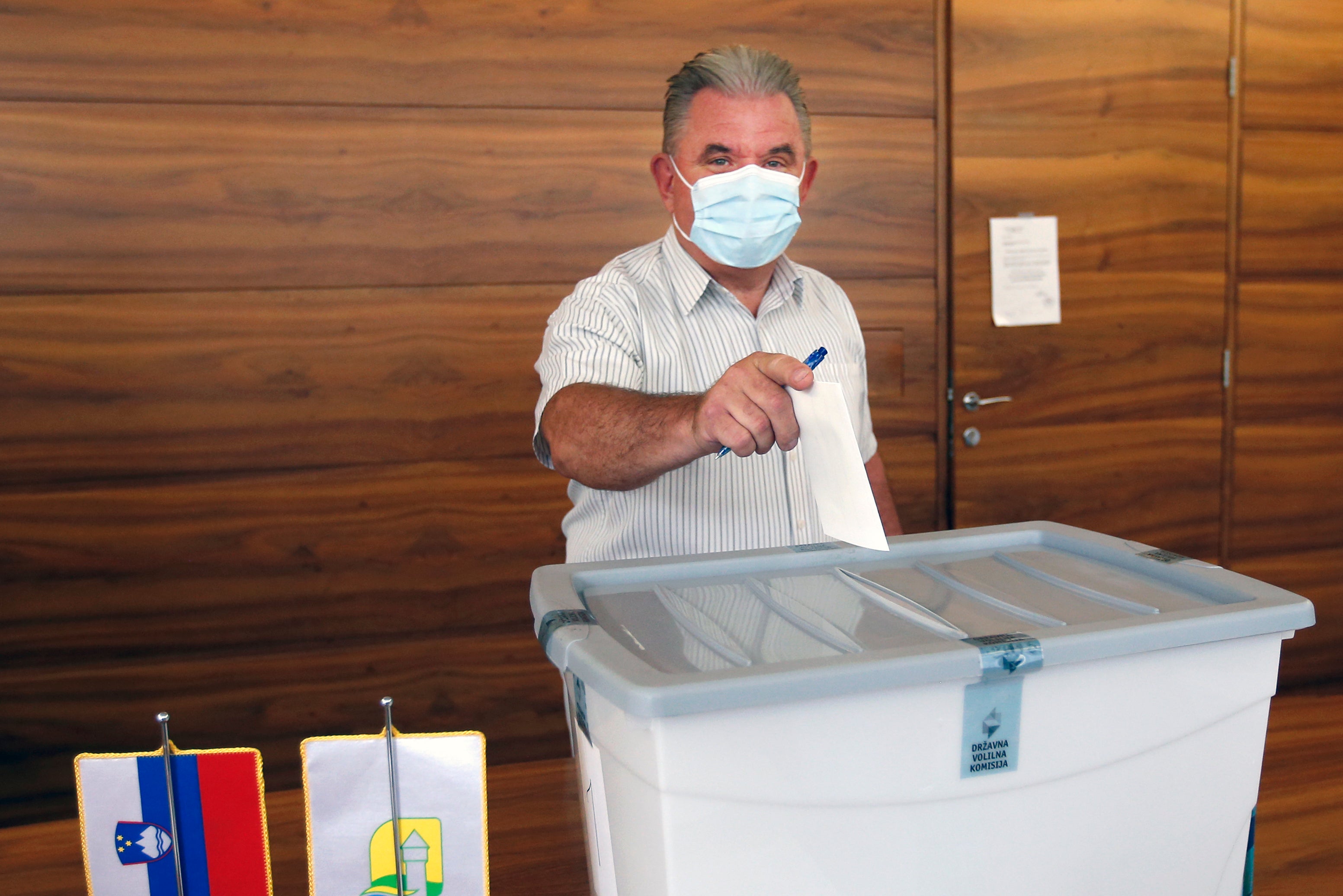Slovenia's water law referendum seen as test for government
Slovenians are voting in a referendum on changes to the country’s water management law, a ballot that is being seen as a test for the government of right-wing Prime Minister Janez Jansa

Slovenians voted Sunday in a referendum on changes to the country's water management law, a ballot seen as a test for the government of right-wing Prime Minister Janez Jansa
Jansa's government approved the amendments in March but ecologists have pushed through the referendum, saying the changes threaten the environment and water quality.
The issue has sparked a heated debate in the small European Union nation of 2 million people known for its stunningly beautiful Alpine scenery. The right to water was enshrined in the country's constitution in 2016.
At the center of the dispute is a provision regulating the construction of buildings, including hotels, shops and restaurants, close to the sea, rivers or lakes.
While the government insists it has tightened the construction rules and provided more water and flood protection funds, opponents claim the regulations favor the interests of private investors, limit public access to water and jeopardize its quality.
The water dispute has reflected heightened political tensions in Slovenia, where Jansa’s government has faced accusations of curbing democratic and media freedoms in the traditionally liberal nation.
Environment Minister Andrej Vizjak complained that the referendum is not about "rational voting.”
“It’s more or less about emotions, about politics,” he said. “I am sorry that water as a great commodity is being used for these purposes.”
Jansa also has faced EU scrutiny over his populist ways as Slovenia took over the European Union's six-month rotating presidency earlier this month.
For the referendum to succeed, a majority of those who voted and at least one-fifth of around 1.7 million eligible voters — around 340,000 — must reject the water law amendments. Early voting in nursing homes and at several polling stations has drawn a record number of more than 84,000 citizens, suggesting high public interest in the topic.
Slovenian electoral authorities said Sunday that turnout was almost 30% by mid-afternoon, according to the STA news agency.
Anita, a woman in Ljubljana the capital, who didn't give her last name, said “I’m very interested in this vote.”
“I think we have to decide for our own future,” she added. “' think its good that we hold polls and referendums on important questions.”
The referendum came after environmental and civil society groups joined together in a “Movement for Drinkable Water” and collected more than 50,000 signatures demanding it.
Bookmark popover
Removed from bookmarks